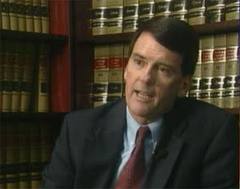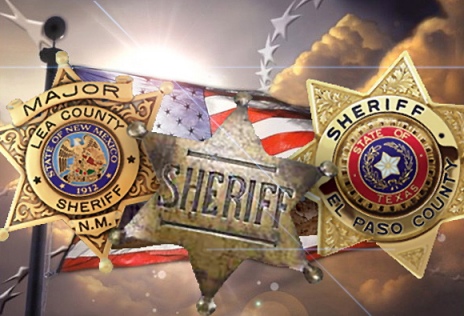
U.S. Federal Judge John Roll Murdered: The Sheriff’s Judge Who Upheld The Constitution And Reversed Congress!
Pat Shannon
He was no stranger to death threats, and had once been given a month-long U.S. Marshals Service protection detail.
Arizona Judge Stood Firm With Sheriff Mack
During the hours following the Tucson tragedy, as the details slowly emerged and we learned that a relatively unknown congresswoman was seriously wounded and a federal judge had been among the six killed, many Americans wondered if there was a specific target and who that might have been. More importantly, why was Rep. Gabrielle Giffords (D-Ariz.) getting all the ink while Judge John Roll remained virtually unnamed for a whole day? In this business, we at AFP long ago learned to read the white part of the newspaper.
We were in good company. Even Texas Republican Rep. Ron Paul’s daily Internet news release was asking the same questions the following week. Next, former Arizona Sheriff Richard Mack* came forward with illuminating information that none of us remembered: Judge Roll was one of the few “good guys” on the federal bench. He had ruled favorably in Mack’s case against the Brady Bill in 1994 when Mack had sued the federales for trying to force him and all the other sheriffs in America to do their work for them.
Mack took it all the way to the Supreme Court where he finally got the reversal in 1997 and forced the rewriting of the far less intrusive Brady Bill.
But earlier in the game, he found himself in Roll’s federal courtroom fighting a provision in the new statute that threatened to put him in federal prison. Mack says that Roll seemed sincerely concerned about federal power to arrest any sheriff that failed to comply with the federal mandate, even though then-Attorney General Janet Reno had said that the bill’s language was aimed at gun shop owners and not the sheriffs.
Roll granted Mack’s injunction against the government for any arrest for failing to comply. Then the prosecutor told the judge that in only the first four months of enforcing the Brady Bill the government had prevented over a quarter million felons from gaining access to handguns. Disregarding the audacious exaggeration of numbers, Roll further impressed Mack by telling the prosecutor,
“Counselor, do not pretend in this courtroom that your statistical analysis somehow equates to Constitutionality.”
Mack tells us what Roll included in his ruling on the Mack v. US case:
The court finds that in enacting [the Brady bill] Congress exceeded its authority under Article 1, section 8 of the United States Constitution, thereby impermissibly encroaching upon the powers retained by the states pursuant to the Tenth Amendment. The court further finds that the provision, in conjunction with the criminal sanctions its violation would engender, is unconstitutionally vague under the Fifth Amendment of the United States Constitution.
“Judge Roll,” writes Mack, “of all the dozens of judges who had heard this case from me and the other six sheriff defendants, was the only one who ruled that the Brady Bill violated the Fifth Amendment as well as the Tenth. It was pursuant to Judge Roll’s insight and sensitivity to the threat this ‘law’ posed to us, the sheriffs, that this case made it to the U.S. Supreme Court.”
Further into the decision, Mack saw Roll display another principle and said, “It truly brought me to understand how astonishing this man really was.”
Roll had said, “Mack is thus forced to choose between keeping his oath or obeying the act, subjecting himself to possible sanctions.”
“I have to say that Roll’s understanding of principles amazed me,” Mack writes today. “He was so professional and knowledgeable. He took his job and the Constitution so seriously.”
Pima County, Ariz. Sheriff Clarence Dupnik’s ridiculous blaming of conservative talk show hosts was reminiscent of the same cover-up ploy at Oklahoma City in 1995, but his public statements regarding Roll having just dropped by to say “Hi” and his being “in the wrong place at the wrong time” may merit further examination considering there have been some questions about who will have jurisdiction over the crime—the state or the federal government.
FBI Agent Tony Taylor filed an affidavit with the court swearing that he saw Roll chatting with Gifford’s congressional aide, Ron Barber, for several minutes prior to the shooting, and that Roll had been notified by telephone of the Saturday rally on Friday. Roll was apparently at the rally to discuss illegal immigration and the extreme caseload imposed on federal judges in Arizona largely related to immigration cases.
Full credit to American Free Press.



